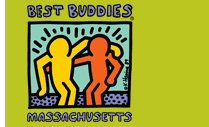- Education Topics
- Achievement Gap
- Alternative Education
- American Education Awards
- Assessment & Evaluation
- Education during COVID-19
- Education Economics
- Education Environment
- Education in the United States during COVID-19
- Education Issues
- Education Policy
- Education Psychology
- Education Scandals and Controversies
- Education Reform
- Education Theory
- Education Worldwide
- Educational Leadership
- Educational Philosophy
- Educational Research
- Educational Technology
- Federal Education Legislation
- Higher Education Worldwide
- Homeless Education
- Homeschooling in the United States
- Migrant Education
- Neglected/Deliquent Students
- Pedagogy
- Sociology of Education
- Special Needs
- National Directories
- After School Programs
- Alternative Schools
- The Arts
- At-Risk Students
- Camps
- Camp Services
- Colleges & Universities
- Counties
- Driving Schools
- Educational Businesses
- Financial Aid
- Higher Education
- International Programs
- Jewish Community Centers
- K-12 Schools
- Language Studies
- Libraries
- Organizations
- Preschools
- Professional Development
- Prom Services
- School Assemblies
- School Districts
- School Field Trips
- School Health
- School Supplies
- School Travel
- School Vendors
- Schools Worldwide
- Special Education
- Special Needs
- Study Abroad
- Teaching Abroad
- Volunteer Programs
- Youth Sports
- For Schools
- Academic Standards
- Assembly Programs
- Blue Ribbon Schools Program
- Educational Accreditation
- Educational Television Channels
- Education in the United States
- History of Education in the United States
- Reading Education in the U.S.
- School Grades
- School Meal Programs
- School Types
- School Uniforms
- Special Education in the United States
- Systems of Formal Education
- U.S. Education Legislation
- For Teachers
- Academic Dishonesty
- Childcare State Licensing Requirements
- Classroom Management
- Education Subjects
- Educational Practices
- Interdisciplinary Teaching
- Job and Interview Tips
- Lesson Plans | Grades
- Professional Development
- State Curriculum Standards
- Substitute Teaching
- Teacher Salary
- Teacher Training Programs
- Teaching Methods
- Training and Certification
- For Students
- Academic Competitions
- Admissions Testing
- At-Risk Students
- Career Planning
- College Admissions
- Drivers License
- Educational Programs
- Educational Television
- High School Dropouts
- Higher Education
- School Health
- Senior Proms
- Sex Education
- Standardized Testing
- Student Financial Aid
- Student Television Stations
- Summer Learning Loss
Best Buddies

Basic Information
Address: 45 Bromfield St./ 3rd Floor Boston, MA 02108
Email: kalismall@bestbuddies.org
Phone Number: 617-778-0522
Fax Number: 617-778-0526
Additional Information
Focus: One to one friendships for individuals with intellectual disabilities
Setting:
Best Buddies ® is a nonprofit 501(c)(3) organization dedicated to enhancing the lives of people with intellectual disabilities by providing opportunities for one-to-one friendships and integrated employment
History:
Founded in 1989 by Anthony Kennedy Shriver, Best Buddies is a vibrant, international organization that has grown from one original chapter to more than 1,300 middle school, high school, and college campuses across the country and internationally. Best Buddies programs engage participants in each of the 50 United States. We have accredited international programs on six continents with additional country programs under active development. Our six formal programs - Best Buddies Middle Schools, High Schools, Colleges, Citizens, e -Buddies® and Jobs - will positively impact more than 350,000 individuals this year. Best Buddies also is systematically implementing our 2010 initiative that will witness the organization's continued significant growth, both domestically and overseas. Best Buddies volunteers annually contribute services to the community that equate to more than $70 million USD.
Program Information:
The mission of the Best Buddies Middle & High Schools Programs are to provide opportunities for middle & high school students to be matched in a one-to-one friendship with individuals who have intellectual disabilities. Social experiences and relationships are a part of life; unfortunately, individuals with intellectual disabilities have historically been excluded from many of the social opportunities that most people enjoy. By becoming a middle or high school peer buddy, you will not only befriend someone with an intellectual disability, but you will also learn about yourself in the process.
Slogan: Friends and Jobs-- the Ticket to Success!




